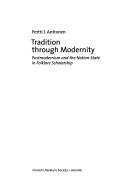| Listing 1 - 10 of 77 | << page >> |
Sort by
|
Periodical
Year: 1898 Publisher: Rock Island, Ill. : Augustana College and Theological Seminary,
Abstract | Keywords | Export | Availability | Bookmark
 Loading...
Loading...Choose an application
- Reference Manager
- EndNote
- RefWorks (Direct export to RefWorks)
Book
ISBN: 9781781858950 Year: 2017 Publisher: London Head of Zeus
Abstract | Keywords | Export | Availability | Bookmark
 Loading...
Loading...Choose an application
- Reference Manager
- EndNote
- RefWorks (Direct export to RefWorks)
The Scandinavians are regarded as Europe's most tolerant and peace-loving people. So how was it that one of the worst acts of political terror ever witnessed on this continent was committed by a Norwegian - against his fellow countrymen? Scandinavia is the epitome of cool: we fill our homes with cheap but stylish Nordic furniture; we envy their health-giving outdoor lifestyle; we glut ourselves on their crime fiction; even their strangely attractive melancholia seems to express a stoic, common-sensical acceptance of life's many vicissitudes. But how valid is this outsider's view of Scandinavia, and how accurate our picture of life in Scandinavia today? Robert Ferguson digs down through two millennia of history to tell stories of extraordinary events, people and objects - from Norwegian Death Metal to Vidkun Quisling, from Agnetha Faltskog to Greta Garbo, from Lurpak butter to the Old Norse rune stones - that richly illuminate our understanding of modern Scandinavia, its society, politics, culture and temperament.
Book
ISBN: 2918682829 9782918682820 Year: 2021 Publisher: Paris: Arkhê,
Abstract | Keywords | Export | Availability | Bookmark
 Loading...
Loading...Choose an application
- Reference Manager
- EndNote
- RefWorks (Direct export to RefWorks)
Scandinavians --- Greenland --- Scandinavia
Book
Year: 1942 Publisher: Hamburg : Hanseatische Verlagsanstalt,
Abstract | Keywords | Export | Availability | Bookmark
 Loading...
Loading...Choose an application
- Reference Manager
- EndNote
- RefWorks (Direct export to RefWorks)
Scandinavians. --- Scandinavia --- Civilization.
Book
Year: 1906 Publisher: Halle : Niemeyer,
Abstract | Keywords | Export | Availability | Bookmark
 Loading...
Loading...Choose an application
- Reference Manager
- EndNote
- RefWorks (Direct export to RefWorks)
Northmen. --- Scandinavians. --- Wikinger.
Book
Year: 1933 Publisher: Hamburg : Hanseatische verlagsanstalt,
Abstract | Keywords | Export | Availability | Bookmark
 Loading...
Loading...Choose an application
- Reference Manager
- EndNote
- RefWorks (Direct export to RefWorks)
Scandinavians. --- Scandinavia --- Civilization.
Book
Year: 2007 Publisher: Köpenhamn : Nordisk Ministerråd,
Abstract | Keywords | Export | Availability | Bookmark
 Loading...
Loading...Choose an application
- Reference Manager
- EndNote
- RefWorks (Direct export to RefWorks)
Cooperation --- Scandinavians. --- Social aspects.
Book
Year: 1555 Publisher: Romae : apvd Ioannem Mariam de Viottis,
Abstract | Keywords | Export | Availability | Bookmark
 Loading...
Loading...Choose an application
- Reference Manager
- EndNote
- RefWorks (Direct export to RefWorks)
Ethnology --- Scandinavians --- History --- Scandinavia --- Civilization
Book
ISBN: 9789516533677 9516533671 Year: 2008 Publisher: Vammala Societas scientiarum Fennica
Abstract | Keywords | Export | Availability | Bookmark
 Loading...
Loading...Choose an application
- Reference Manager
- EndNote
- RefWorks (Direct export to RefWorks)
Swedes --- Swedish people --- Ethnology --- Scandinavians --- Folklore --- History

ISBN: 951746665X 9522228141 952222815X 9789522228147 9789522228154 Year: 2005 Publisher: Helsinki : Finnish Literature Society / SKS,
Abstract | Keywords | Export | Availability | Bookmark
 Loading...
Loading...Choose an application
- Reference Manager
- EndNote
- RefWorks (Direct export to RefWorks)
"In their study of social practices deemed traditional, scholars tend to use the concept and idea of tradition as an element of meaning in the practices under investigation. But just whose meaning is it? Is it a meaning generated by those who study tradition or those whose traditions are being studied? In both cases, particular criteria for traditionality are employed, whether these are explicated or not. Individuals and groups will no doubt continue to uphold their traditional practices or refer to their practices as traditional. While they are in no way obliged to explicate in analytical terms their criteria for traditionality, the same cannot be said for those who make the study of traditions their profession. In scholarly analysis, traditions need to be explained instead of used as explanations for apparent repetitions and replications or symbolic linking in social practice, values, history, and heritage politics. This book takes a closer look at 'tradition' and 'folklore' in order to conceptualize them within discourses on modernity and modernism. The first section discusses 'modern' and 'traditional' as modern concepts and the study of folklore as a modern trajectory. The underlying tenet here is that non-modernity cannot be represented without modern mediation, which therefore makes the representations of non-modernity epistemologically modern. The second section focuses on the nation-state of Finland and the nationalistic use of folk traditions in the discursive production of Finnish modernity and its Others. The insights are applicable worldwide in discussions on cultural representation."
#VCV monografie 2005 ruil --- Folklore --- Scandinavians --- Ethnology
| Listing 1 - 10 of 77 | << page >> |
Sort by
|

 Search
Search Feedback
Feedback About UniCat
About UniCat  Help
Help News
News